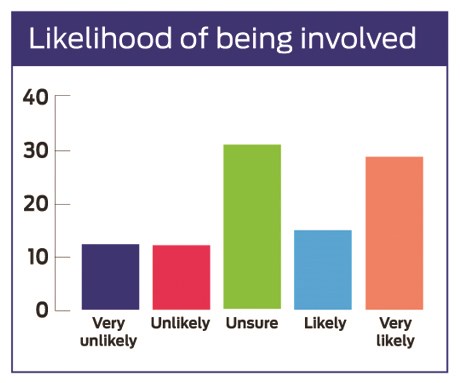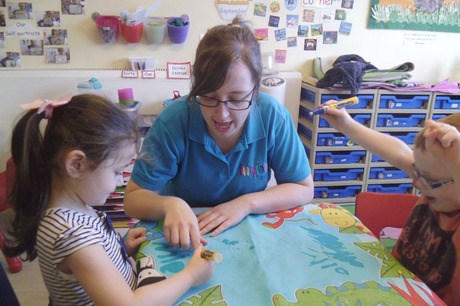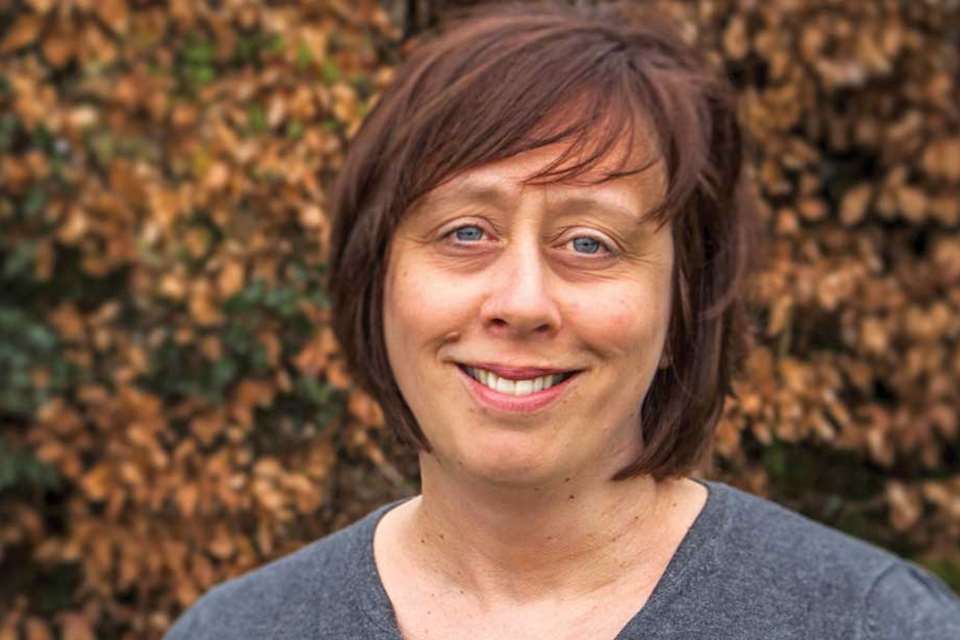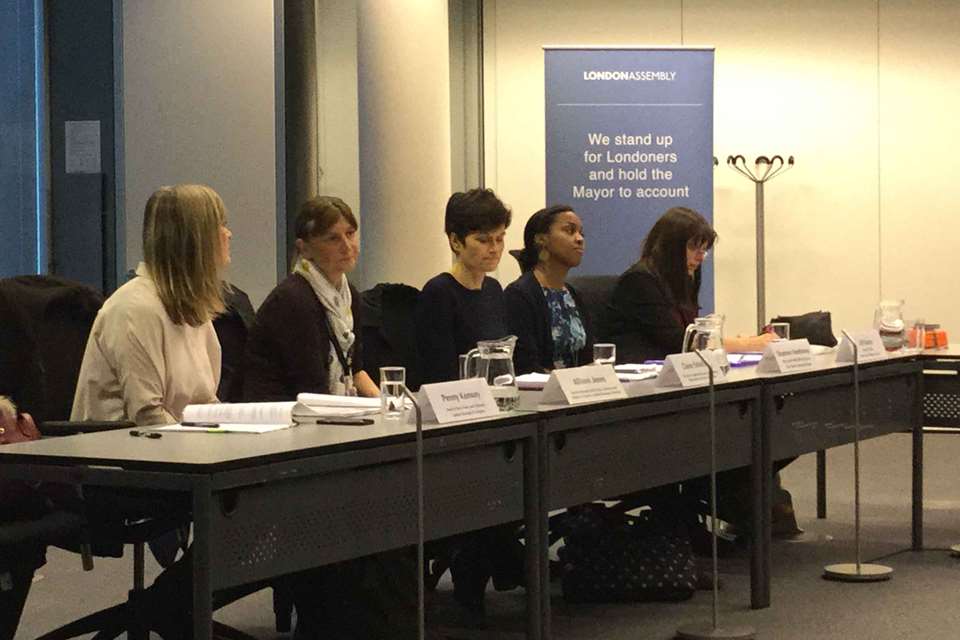NDNA survey: most settings wary of 30 hours
Monday, February 22, 2016
The latest NDNA survey finds funding and the 30 hours policy causing nurseries concern

Fewer than half of nurseries in England say they are likely to offer the 30-hour funded childcare places, the National Day Nurseries Association has found.
Data provided by 500 private and voluntary nurseries in England for the NDNA’s annual survey showed the majority are still unsure about the extra hours.
Forty-five per cent said they were ‘likely’ or ‘very likely’ to be involved.
A quarter said they are ‘unlikely’ or ‘very unlikely’ to increase funded places, citing inadequate funding and space.

Source: NDNA
Most nurseries are still struggling to cover the costs of the 15-hour entitlement for three- and four-year-olds, with an average funding shortfall of £34,000 a year, the survey revealed. Eighty-nine per cent of nurseries are ‘making a loss’ on these places, so doubling the entitlement could be a step too far for many.
The survey report warned that ‘tens of thousands’ of parents across the country could struggle to find places unless the Government takes action.
According to the survey, only a third of three- and four-year-olds attend for more than 30 hours. The report said Department for Education statistics show that the average child goes to a private sector nursery for 20 hours a week. ‘The biggest risk of 30 free hours is that nurseries lose the ability to charge a viable rate and balance their books’, it said.
Other findings include:
• Currently, 58 per cent of entitled twos use the funding.
• Only 28 per cent of nurseries plan to offer more twos places.
• Nurseries are only offering nine places per setting for twos, compared with 11 last year.
• The National Living Wage will push up the average payroll by 10 per cent from April.
• Eighty-three per cent of nurseries plan to increase fees, on average by 4 per cent, citing the NLW and pension auto-enrolment.
• The busiest nursery days are Tuesday to Thursday, with 50 children attending on average.
• Occupancy is similar to last year at 72 per cent.
• Only 43 per cent of nurseries were positive about the future, compared with 49 per cent last year.
• Fifty-one per cent expect to make a profit, and nine per cent a loss.
NDNA chief executive Purnima Tanuku said, ‘Serious funding shortfalls stand in the way of nurseries getting on board, despite their desire to help families with free childcare.’
The NDNA points out that the 30-hour offer will see the Government becoming the private and voluntary sector’s biggest customer for nursery provision for the first time, while the PVI sector is the Government’s biggest delivery partner for the scheme.
More nurseries viewed the scheme negatively than positively: 43 per cent and 19 per cent respectively. Thirty-seven per cent were ambivalent.
Commenting on nurseryworld.co.uk, nursery owner Ross Midgeley said that while he shared concerns about under-funding, ‘There is a big difference between “lost income” and a “loss”, and NDNA does us no favours by pretending that these are the same thing. If you are really left in a worse position financially by filling a free entitlement place than by leaving it unfilled, then don’t do it.
‘Each nursery is different. Of course I’d like mine to be full of children generating full fees, but the reality is that if there is spare capacity, a funded booking is still better than no booking at all.’
Courteney Donaldson, head of childcare at Christie & Co, said, ‘With specific regard to sustainability, private sector nurseries, which account for circa 80 per cent of all provision in England, must achieve an adequate surplus when delivering any number of funded places. Making a surplus on the delivery of this scheme is essential in order for providers to have the ability to reinvest to deliver high-quality childcare. Nursery providers fundamentally need to make a surplus in order to make ongoing investment into staff training, nursery resources, equipment and the facility from which the setting trades.’
She said the biggest challenge that many childcare providers face is that not all of the central government funding made it thorough to the front line.
‘While local authorities administer funds associated with the scheme, not all authorities pass on all of the funds they receive to providers currently delivering the 15-hour entitlement. When the 30 hours scheme is implemented, that funding gap could potentially widen unless the funding is ring-fenced,’ Ms Donaldson said.
‘The underfunding of the current 15-hour entitlement needs to be addressed, as does funding for the proposed 30 hours’ scheme. Should adequate funding not be received by providers at the front line, the long-term sustainability of the scheme will be at risk,’ she added.
CASE STUDIES: FOOTPRINTS CHILDCARE AND LITTLE FACES
 Nichola Bamber, owner, Footprints Childcare, Bamber Bridge, Preston
Nichola Bamber, owner, Footprints Childcare, Bamber Bridge, Preston
Number of three- and four-year-old places: 42 (62-place nursery)
‘We will do the 30 hours mainly because of competition from six nurseries in our area, including Busy Bees, independent nurseries and some attached to schools. The majority of our parents will be eligible – only 15 per cent of parents of threes and fours will not be.
‘We receive £4.08 an hour currently from Lancashire County Council. The offer is flexible over 51 weeks a year for the funding, so parents using 15 hours get 11.5 hours free and pay for 3.5 hours each week. The Government rate of £4.88 an hour will lead to a shortfall of 40p an hour.
‘On the one hand, I’m pleased the Government is bringing this in, it will mean a significant advantage for parents. But for children we currently have, we will lose 40 hours in income a week.
‘There’s also the National Living Wage coming in, which will affect us massively [£7.20 an hour for over-25s from 1 April]. Only three of our 23 staff are under 25. We employ older, more experienced staff and we’re going to be penalised. Most staff will get a 7 per cent pay increase from April.
‘Parents will shop around and, if we don’t offer the 30 hours, will go elsewhere. The big chains can drop prices considerably and close the market.’

Jane Freeman, owner, Little Faces Childcare, Essex
Number of three- and four-year-old places: 18 (40-place nursery)
‘Our local authority gives different rates dependent on the type of setting. If you’re open 45 weeks a year, you get £4.01 an hour for three- and four-year-olds – the rate we get. Packaway pre-schools get £3.89, and childminders gets £4.85. You get £6.19 in maintained nursery schools. It’s unfair. We’re losing money and we’re not allowed to charge top-ups. It’s hard doing it as it is – 30 hours will make it more of a loss to a business.
‘We’re very likely to do it because it would put me out of business if I didn’t. Some income is better than no income.
‘Parents should pay the difference [between the cost and funding].’
COMMENT
By Sam Gyimah, minister for education and childcare
As a Government we have put helping families at the heart of our agenda, and from September next year, working parents of three- and four-year-olds will be able to access 30 hours of free childcare a week.
We knew we would need to engage with providers to make our offer work and we are delivering on our commitments to the sector. We were the only party who said they would raise the hourly funding rate paid to providers. And last summer, we had an extensive consultation which was central to the review we launched. This was the most comprehensive analysis of this market ever, examining costs at the provider level and considering future cost. As a result, we will uplift the national average rates paid to £4.88 for three- and four-year-olds, including the Early Years Pupil Premium, and £5.39 for two-year-olds.
Providers wanted to end the inherent unfairness of different funding rates based on historic calculations. So at the Spending Review the Chancellor announced that we will implement an early years national funding formula.
We were also told that too much of the funding didn’t reach the front line. So we are working with councils to improve contracts that haven’t always worked for providers and been clear that local authorities can’t topslice unfairly.
Parents and providers alike let us know that it was vital to keep the quality of the workforce high. That’s why we are committed to raising the bar so that our children are in the best possible hands. A key strand of our Workforce Strategy which will be developed in 2016 will be looking at progression routes in the sector.
We decided to bring the offer forward to this autumn in some areas. And there will also be early innovators in every region – who will look specifically at innovative ways of making sure childcare is accessible to as many parents as possible, testing out challenges that childcare providers or parents might face.
By 2019-20 we will be spending over £1 billion more per year to fund our extended free childcare offer, as part of a £6 billion a year cross-Government package. It is now time to acknowledge the huge investment we are making in the sector and the significant uplift to the funding rate. We need the sector to work with us, rather than taking opportunities to manufacture outcry.
The childcare market is healthy and thriving. There are 230,000 more places. And we’re bringing in reforms so that providers can deliver more free childcare to 390,000 working families, as well as making the sector more sustainable, fair to the taxpayer and deliver for parents. Our investment will help the childcare market grow and will enable it to support parents across the country.









